Educationist Fatma Esra Tosun (4): The people of Pakistan stood for us in times of happiness and sorrow

Imam Hujwiri: The venerated guest of Lahore who spread Islam in the Subcontinent
February 21, 2022
Breakfast culture in Pakistan and delicacies at a Turkmen table
February 26, 2022Fatma Esra Tosun, who worked as a teacher and administrator in different cities of Pakistan for 13 years, says the people of Pakistan always stood for them and adds, “If I had the opportunity, I would go there again today.” She says although she and her children had security problems during their last months there, she feels a pang of grief whenever she remembers her friends and students in Pakistan. In the last part of our interview, Tosun talks about her days spent in fear of abduction, her illness caused by those fears, and her Pakistani friends who rushed to her aid in that time of hardship.
–What kind of a country was Pakistan from your lens? What were your observations in terms of social structure and culture?
When you go to a country, if you do not attend to births, deaths or weddings, you cannot get to know that place for real. Unfortunately, we lead a somewhat isolated life in our current country due to security issues. You cannot get to know the people that much because there is racial discrimination, but there was no place we did not visit in Pakistan. We visited villages, towns, and hill stations. We never felt unsafe until the last period when our schools were seized and they wanted us to leave the country. We are grateful to our Pakistani friends who always stood for us in death, sickness and joy; they never abandoned us. I still feel a pang of grief whenever I remember them.
Pakistan has a very special place for me. We went there without fear and we travelled there without fear. I used to visit the China Market without hesitating to drive in dense traffic while I was heavily pregnant. We used to visit shops to buy materials for the activities we did with our students. By my calculations, I still had 15 days left until the birth. I was at the school having a meeting the day before my check-up. Yet, it was time. Everyone was surprised when they heard I had given birth that day.
Women in postnatal period in Pakistan are well looked after. Their mothers and mothers-in-law attend and take care of them. That close interest starts even before the birth. We did not have such a thing, of course, we were not used to it. When Pakistani friends saw us at the school until the last day before the birth, I heard they had said, “They are really ecstatic for the school!” among themselves.
I had a miscarriage after my elder son Mehmet Selim in Islamabad. My neighbours heard of that. They requested an Iraqi neighbour to cook for us because they thought the Iraqi cuisine was more similar to the Turkish one. When I arrived home from the hospital, the neighbour brought a tray full of much food. After that, I didn’t cook at home for a week. My neighbours always cooked and delivered food to our home. I said to my husband, “I never say ‘Why am I not in Turkey?’ Look how nicely our neighbours take care of us!” Both my Pakistani colleagues from the school and the neighbours visited my house to wish get well soon. They never left us unattended.
THEY SAID I HAD WAILED ON THE STREET
-Did the health problems of the baby who had gotten sick in Khairpur Mirs continued in Islamabad?
Yes, unfortunately. Turns out Mehmet Selim had asthma. It was a year after our arrival in Islamabad, in 2008 when he was 3. He had an asthma attack just the day after we learned he had asthma. That day Allah took our child, then restored him back to us. He turned black-and-blue. We really thought he was no more. My husband rushed him to the hospital. I fainted at the spot as usual. Friends later said, “We thought you had lost your mind.” I ran barefoot in the street. I just remember praying and wailing loudly “O Allah! Do not inflict me with the pang of losing my child!”…
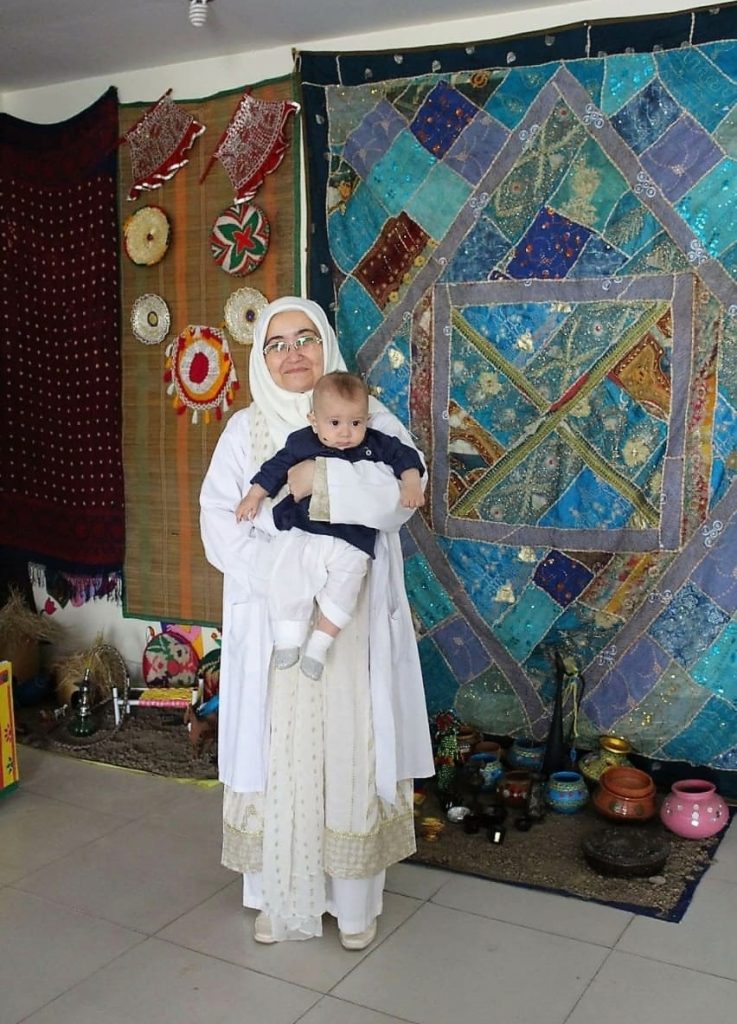
It was so hard. May Allah not make anyone suffer the pang of losing a child. I learned in the car that my friends came especially to pick me up. That’s when I learned my son was alive. I thought he had been dead. He remained in the intensive care unit of a state hospital for 5 days. He had consecutive asthma crises. The doctor said it was a miracle he had remained alive. Our friends and colleagues who had been there back then know this well. They always stood for us. They did not leave us unattended. Mehmet Selim grew under their care. Prayers arrived from all over the world. That was a difficult time for us. Our child lived thanks to prayers. He later recovered completely. He also overcame his asthma.
-When did you leave Pakistan? What did you experience during that phase?
We had moved to Lahore in 2015. I was the administrator of a kindergarten. With the impact of the events in Turkey on July 15, 2016, we also experienced a difficult phase. Everyone who worked in the schools there faced hardships, but ours was different because after the abduction of the Kaçmaz family in 2017, my husband had to leave Pakistan for security reasons. It was so foggy that day in Lahore that planes could not take off. I drove my husband to the airport myself. After we dropped him at the airport, we prayed the plane could take off on schedule. I had to stay in Lahore with the children because the Turkish Embassy had not accepted our passport renewal applications.
That year was tough for us. We were under constant surveillance. An intelligence officer always stood in front of our house, following the incoming and outgoing people. Wherever I went, they followed me. They also came to my house and searched everywhere. The children were always in fear. We were supposedly under the UNHCR asylee protection, but there wasn’t much they could do to protect us. During that phase, I also visited the Turkish consulate in Islamabad a lot to receive our renewed passports. I would drive for 5 hours with the kids. It was also likely they could abduct me on the motorway, but I had no other choice. I continued visiting the consulate hoping the officers would hand me the renewed passports that time. Yet, they didn’t. One of the consular officers was my student’s father. He would say, “Sorry, we cannot process your application. First you must tell me where your husband is!” Actually, they kept on asking even though they knew the answer.
‘IS IT PERMISSIBLE TO BE FULL WHILE YOU ARE HUNGRY?’
-Did you receive the support of your Pakistani friends in the face of the hardships you experienced? How did you continue your life back when you were alone with the children?
After my husband left Lahore, he sent a message to his local friends, saying, “I left without saying goodbye, please forgive me…”. There was an auntie whom we loved so much. She had performed the Pilgrimage. She was elderly, had difficulty walking, and could not climb stairs easily. Having hear about my husband’s departure, she visited. She had a hard time climbing the stairs. She reproached me so much, saying “How could you not tell me? Am I not your sister?” I needed money and had to sell our household stuff as well because we had to leave the country eventually. She inspected the household items and said, “Fatima, spare these for me” without even bargaining about them. She handed me the money she had with her. I said, “Sister, these things are not worth that much, you gave me quite a high amount.” She looked at me and said, “What are you talking about? Aren’t these my children? You are already guilty. Nebi left and you did not inform me. Am I not your sister? From now on, your everything is on me. You just need to phone. Use the items until you’re gone. I’ll have them taken when you leave; for now, you won’t disturb the children’s routine.”
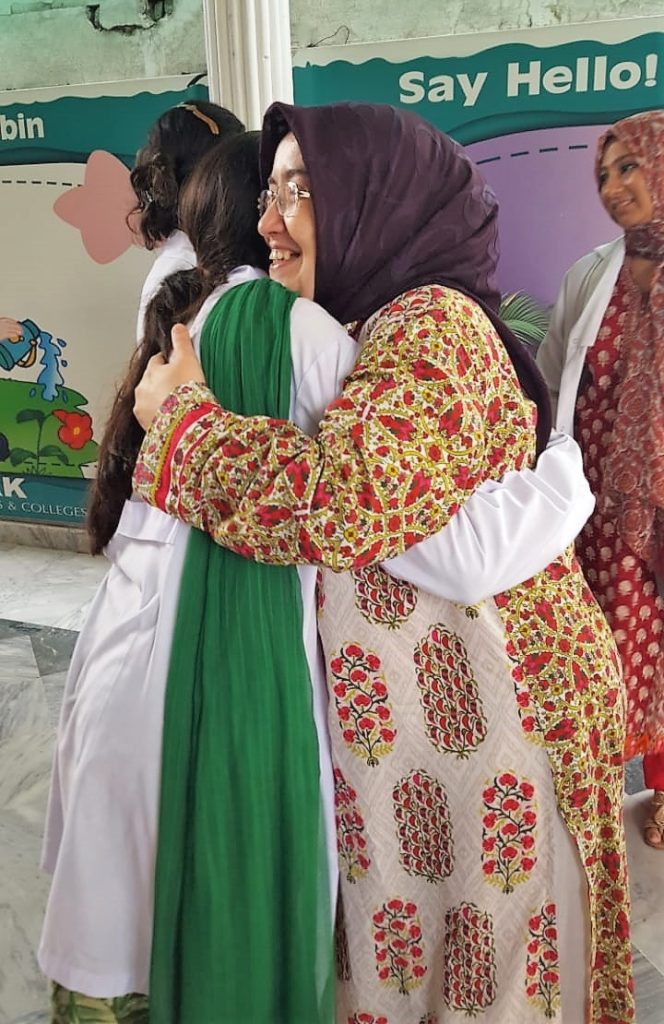
This time I wept but she wept more than me. “Didn’t you come here for us? Will I not be of such little benefit to you? How can you prevent me from committing a good deed?” She said many things like this. May Allah bless her. I never forget what she did for us.
In another instance, one of my Pakistani neighbours, Fatma, learned about my husband’s departure. She thought I had left with him. One day, when she saw the lights in the house, she first phoned and then came. We were fasting with the children that day. “I’ll have a glass of water, I’m not a stranger,” she said, entering the kitchen. Meanwhile, she inspected the cabinets to see what was there, but I could not realize then. Afterwards, she said, “I forgot something, I’ll be right back,” and left. An hour later, the doorbell rang. Fatma’s driver had arrived and they called the children downstairs. It turns out Fatma did some shopping for us. Whatever a house needed, it was more than enough with much food. She even thought of the chips the kids loved. They carried the boxes home with the children. I’ve never had so much food, meat, etc., simultaneously in my house. I was immensely moved by that gesture.
-It must have been hard to become a ‘receiving hand’ while you had always been a ‘giving hand’, am I wrong?
We had seen nothing like that before. While always helping others, we had never experienced a state of need. It weighed pretty heavy on me. I was so much heartbroken. I wept for days. It still gets to me whenever I remember it. ☹
After the boxes, my neighbour also arrived. “Fatma, why did you do that?” I asked her. She said, “Is it permissible for me to sleep in my house while you are hungry here? Aren’t we sisters in Islam? Why didn’t you tell me about your condition?” I said, “We managed. I didn’t need it,” but she protested, “It’s not like that. Your children are my children, and mine are yours. If the same thing happened to me, wouldn’t you do the same?” Of course, I would. For three months we ate what she had brought for us. I can never forget them.
While our families in Turkey did not meet us or called us to ask our condition, people with whom I had no blood ties became lifelines. In those days, we sat with Pakistani friends and wept for hours. “Fatima, all these will pass. These are all tests,” they would say to console me. They are very faithful. People weep whenever Allah and His Messenger are mentioned. I have never seen such kind people. I have been to other Muslim countries but Pakistanis are very different. See how sincerely they offer the Prayer. I always say their prayers and chastity save these people. They also entrust their affairs to Allah all times.
FEARING ABDUCTION, I CHANGED HOUSES
-How did you leave Lahore, where you lived in fear of abduction?
After my husband left, we stayed in Pakistan for another 7 months. I did not send the children to school due to the likelihood of abduction. Those intelligence officers came to my house often. I already knew their arrival from the way they rang the doorbell. One day, when the doorbell rang again, my son Mehmet Selim first went out to the balcony and looked down. I heard the officers say, “Not you, call your big sister, but don’t tell your mother.” I didn’t want them to see my daughter because I was afraid, she would be harmed. “You will not meet anyone unless I say so!” I had warned her. She would remain indoors with her little brother and I would talk to the officers. My son would constantly video-record our conversations on the phone so that if they did something to me, he would have an evidence. It was all we could do. We did so again that day. I didn’t take my daughter out, I went down myself to talk, but the man said “We didn’t call you; we called your daughter.” “What’s up with my daughter?” I asked. They insisted. “I only understand from this that you have come to abduct my child. There is no other explanation for this,” I said.
They had a paper in their hands. I grabbed it and looked. It was a list of our passport numbers and identity information. “Why do you have these? What will you do with them?” I asked “We are intelligence officers. Your state commissioned us,” the man replied. “You are a Pakistani man. You know how hard it is for a woman to live alone here. What would you think if your wife was in my place? You always come to my door and call me a ‘terrorist’. What will people living here think of me? You humiliate us in public. Don’t do it anymore!” I said. Their answer was always the same, “It’s not in our hands. This is our duty,” they would say. Then they asked questions about my husband and me and they already knew the answers. I answered anyway, but the last time he asked a question and it was then everything snapped. “Are you staying home alone with the kids?” “This is none of your business.” I said, closed the door and went inside. My nerves were tattered. I burst into tears.
Then I called my friends. “You will definitely not stay there another day. Obviously, they will abduct you with your children, they are just watching the right time for that”. The next day, we left the house as if we were going to the park with the children, without even informing our landlady. I moved to another place helped by my friends. For the last 5 months from that event until the day I would finally leave Pakistan, the fear of abduction haunted me. I changed 3 houses.
SHE THOUGHT I HALLUCINATED IT ALL!
-How did you endure all these?
Actually, I couldn’t endure it. I developed a panic attack disorder; I simply had not noticed it. I got sick one day. My friend rushed me to the hospital thinking I was having a heart attack. I do not remember. Turns out I had a panic attack. The doctor first thought I suffered heart attack, but when she connected me to the EKG, she understood nothing was wrong with my heart. The doctor asked me, “What was there to be so bored of?” The friend who had rushed me to the hospital could not help but laugh. “Family issues!” she simply said and passed it off. If we explained, the doctor would not understand anyway.
I received a medical report from the hospital and informed the UNHCR office. I said to the officers, “My condition, far beyond financial troubles, has evolved into psychological troubles. I’m losing my health and wellbeing now. How am I going to take care of my three children in this state?” UNHCR officials referred me to a psychiatrist. I went with the kids. Lately, I took kids everywhere I went. I didn’t leave them alone at home. A lawyer lady would also accompany us to our visits to the psychiatrist. I told her what I and my family went through from the very beginning. At one point, the psychiatrist turned to the lawyer and asked in Urdu, “Are these hallucinations or did they really happen?” She didn’t know I understood Urdu. The lawyer said to her, “Actually, she said little. What’s going on with her is much more than that.”
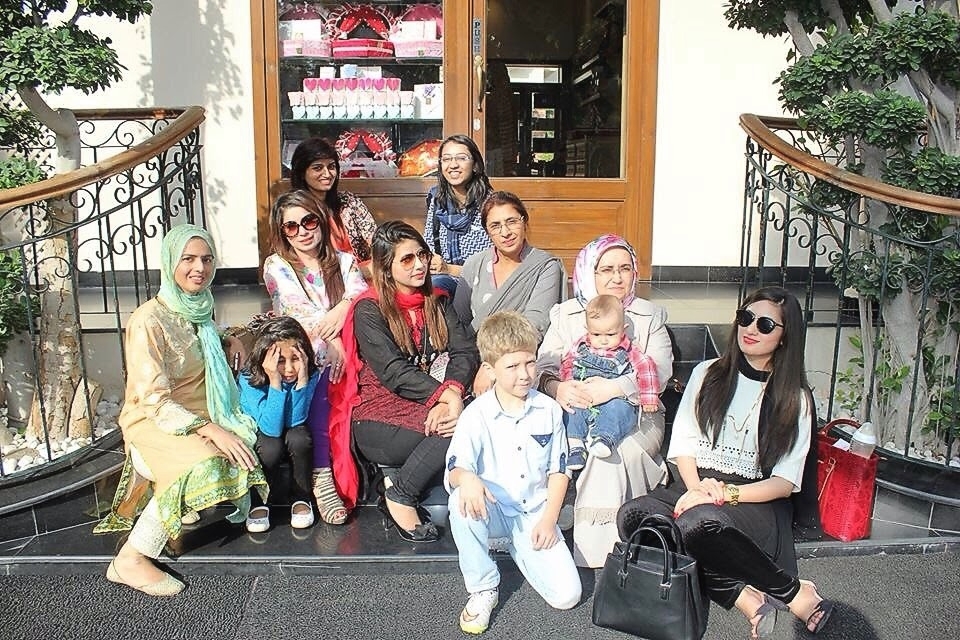
Then the psychiatrist said, “Sorry, I can’t help you because we try to treat our clients by giving them hope and showing them if they have something to hope for in their lives. What you’re describing is like a black hole. How can I help? What should a woman with three children do, how can she live in this country with the fear of being abducted every day? I will write these in the report. I can only prescribe you with sedatives right now. I can help you sleep.” Because I wasn’t sleeping at night. I was afraid something bad would happen at night. I was vigilant all night. She prescribed some sleeping pills, but I said I did not sleep as a precaution. Then the psychiatrist spoke to the children as well. She asked questions. “I can only pray to you. May Allah help you. I cannot say anything else,” she said.
Amidst those troubles, I received the news of my father’s death in 2017. He had a heart attack out of sadness because of the troubles we had. My sister Emrah and her husband had been arrested and their three children had been left unattended. My father was also old and unable to take care of the children by himself. The sadness caused by his helplessness was on one hand, and our distress in Pakistan was on another. They said one day he was watching the news. He stood up and said “Esra, Emrah…” as his last words. They could do nothing for him. So, he passed away like that. We couldn’t be at his side, we couldn’t attend his funeral, we could do nothing. They buried him as if no one claimed him. May Allah help everyone. This is a testing process. That’s what befallen us.
-Did you apply later to get the children’s passports?
Yes, I went to the Turkish consulate once again. They had not given from Islamabad, I thought maybe they would give it from Karachi. The officers cross-examined me for hours. The children also waited outside for a long time. They were afraid the officers had done something to their mother. I will never forget what I experienced there that day. The things they said hurt me beyond words. For example, they said that my husband had abandoned me. “Allah knows the best of everything. There is no need to explain family issues everywhere,” I replied. “We will prepare a one-time document for you to travel to Turkey. Travel with that document!” they said. Of course, I didn’t agree. “I want to go to my husband with my children,” I said. When they said, “No such world exists anywhere! You will go to Turkey and you will be punished. Later you will leave if it is deemed appropriate,” I asked “What’s my fault?” “You are a terrorist!” said an officer. “I have been teaching and working as an administrator at the PakTurk Schools for years. Ask those around me, my students, and parents. What propaganda did I do? What terrorism have I served?” I said.
‘YOU’VE LIVED IN PAKISTAN; YOU CAN ADAPT TO PRISON QUICKLY’
“You have lived in a place like Pakistan, you have gotten used to here. You will adapt to prison conditions much more easily. This place is worse than a prison,” said a Turkish officer at the consulate, insensitively. “If I considered this place as a prison, I wouldn’t have spent 13 years. I wouldn’t have educated that many students. I wouldn’t make friends with local people. I would not dine at their tables. I wouldn’t have had children here. Is there more than that? I adopted this place as my country so I decided to raise my children here.”
While waiting in the consulate lounge for the interview, a Turkish officer had been complaining to his friend that his child could not get used to his local school. As an educator, I had given him some advice. I had told a few things about how a child could adapt to the kindergarten environment and how they could learn foreign languages. “Mashallah, you are very knowledgeable, I never thought of it that way. Let’s try what you’ve said,” he had said. That same person interrogated me in the consulate minutes later. “You have just lauded me for being very knowledgeable. Now you say such things. I know 5 languages, I graduated from 2 universities. Do you believe what you say yourself?” I asked him. “Let’s agree and let’s send you to Turkey,” They insisted, but I refused. “I will continue to live here.” I said and left the consulate.
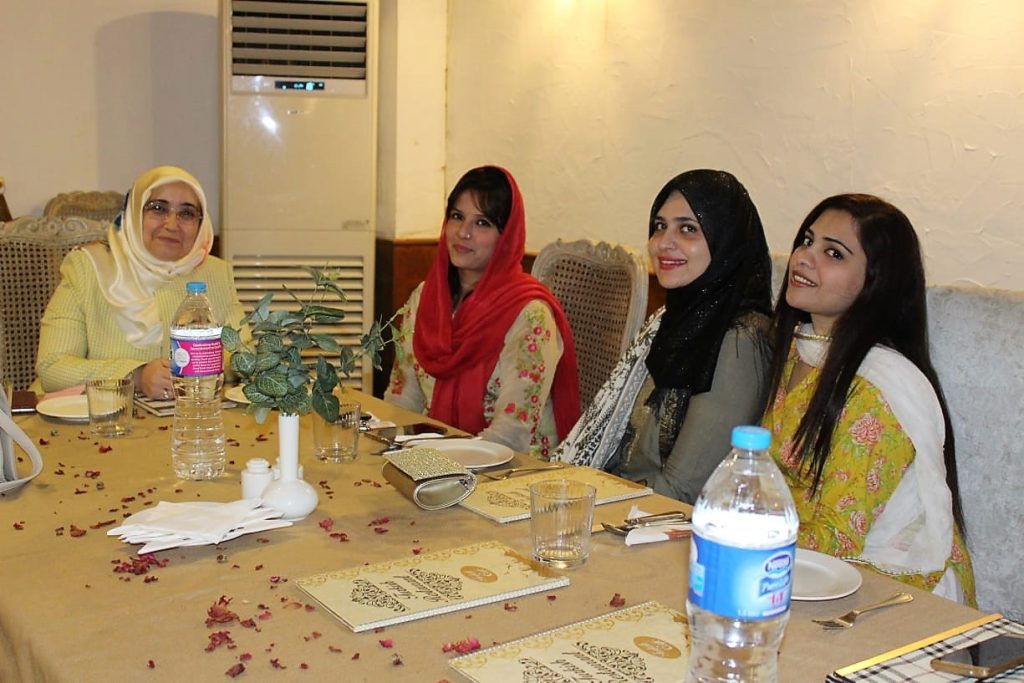
My friends were both surprised and happy when I got out of there. They said, “We thought something had happened to you when you stayed indoors that long.” They would have detained me much likely had they wished so, but Allah did not give them the opportunity. I took my kids and left the place. As they waited outside, the children had been devastated and scared. My husband had also been worried. In short, Allah helped, I forced the means and finally left Pakistan.
In Pakistan, we were never harmed by anyone who knew us. Neither our friends nor parents or student took a negative attitude against us. All were very kind. Yet, other segments that did not know us tried to harm us. Alhamdulillah, we have sustained our communication. We still keep in touch with friends, parents and students. Still there are some who keep on saying, “We’ve missed you so much, when will you return?” They invite us to their wedding. Their children are born and they inform us in joy. These friendships are never forgotten. We live in a modern place no different than Europe. Yet, if I had the opportunity, I would return to Pakistan without a second thought. We could not find everything we loved in Turkey there, but it was possible to live without those things. We did not die because we could not find common tastes such as feta cheese or black olives, we also raised our 3 children there. You keep up with the life of the place, there is no problem. The important thing is to have wealth of heart and peace of mind. Other things are here today and gone tomorrow, anyway.
-How did leaving Pakistan affect your children?
Our youngest son Salih Ikbal was born in Islamabad in 2015. We added ‘Iqbal’ to his name as a memory of the country. He was 4 years old when we left Pakistan. He still talks about Pakistan. He remembers it at every opportunity. If he sees something from there, he says, “We bought this from Pakistan, didn’t we? I have my friends there.” He remembers our life there well. He was very young but the country left quite a mark on him. My daughter and my eldest son love Pakistan much. They had many friends there. Maybe there were no great financial means, but I don’t know if they can find that sincerity and friendship elsewhere.
We arrived in another country and settled down. Many people, both local and from different countries, live here, but I see our children’s friends are all Pakistani because their mindsets match; they know their language and culture. My case is likewise. When Turkish friends see a Pakistani, they say “Here comes another fellow citizen from your country”. It gives me great pleasure to sit and talk with Pakistani friends. Here I continue to teach at a school offering religious subjects. I take courses in Arabic, Turkish and Islamic Studies. I also have Pakistani students. They are very happy when I say something in Urdu to them during the lesson. I am very comfortable with them. I know their character and culture.
End.
***
Part Three: Educationist Fatma Esra Tosun (3): We were tested with a bread machine on our way to Islamabad!

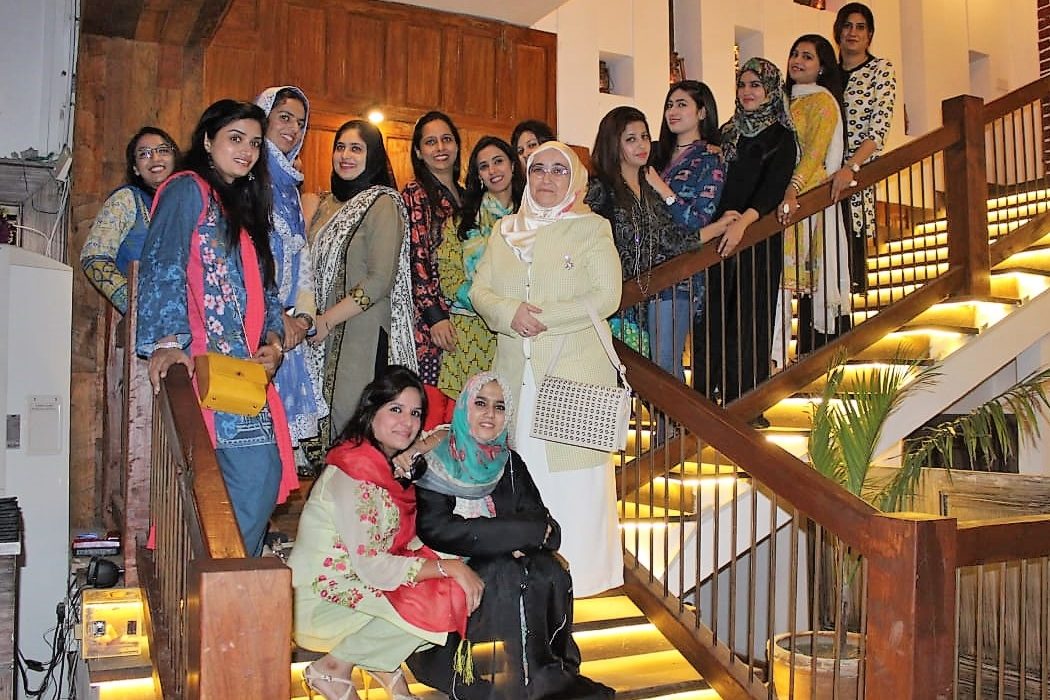



No Comment.